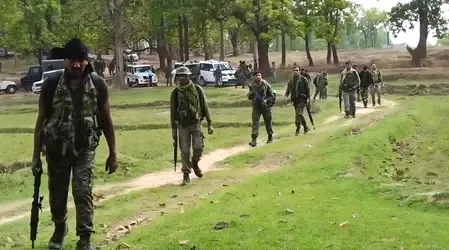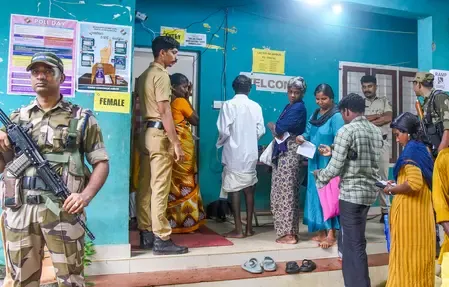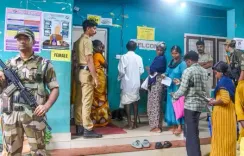How Did the Maoist IED Blast Claim the Life of Chhattisgarh ASP?

Synopsis
Key Takeaways
- ASP Akash Rao Giripunje tragically lost his life in a Maoist IED blast.
- The attack resulted in multiple injuries among patrol officers.
- Deeply buried IEDs are a significant threat to security forces.
- Urgent improvements in detection technology and protective measures are necessary.
- The incident underscores the ongoing challenges faced by security personnel in insurgency-affected regions.
Raipur, June 9 (NationPress) Maoists executed a deadly attack using an improvised explosive device that resulted in the tragic death of Additional Superintendent of Police Akash Rao Giripunje from the Konta Division in Sukma district of Chhattisgarh.
State Home Minister Vijay Sharma confirmed this heartbreaking news and expressed his deep sorrow, highlighting that Giripunje, a 2013 batch officer, displayed remarkable courage throughout his career.
Alongside Giripunje, several other officers on patrol suffered injuries in this horrific blast. Reports suggest that Konta Town Inspector Sonal Gwala was among the wounded, prompting the deployment of security forces to the area to secure the site and provide necessary reinforcements.
Sources indicate that ASP Giripunje was severely injured and ultimately succumbed to his wounds. This attack occurred just ahead of a Bharat Bandh called by the Maoists on June 10.
At the time of the incident, ASP Giripunje was leading a foot patrol along the Konta-Errabor road after establishing a security camp when the explosion occurred near Dondra.
The blast resulted in multiple injuries, and those affected are currently receiving care at Konta Hospital.
Deeply buried IEDs pose a significant danger to security forces operating in regions affected by insurgency.
Reports indicate that detection equipment often fails to identify explosives located more than two feet underground, as evidenced by the Bijapur Naxalite attack, where an IED buried five feet deep led to the deaths of eight soldiers and a driver.
Security protocols require road-opening teams and bomb disposal units to conduct initial sweeps before troop movements.
However, despite these precautions, deeply embedded explosives continue to threaten personnel.
Several previous Maoist IED attacks have resulted in severe casualties.
In January 2025, nine soldiers lost their lives in an explosion targeting a security convoy.
In April 2022, an attack resulted in eleven fatalities.
A March 2021 bombing of a bus carrying soldiers resulted in five deaths and injuries to eleven others.
In April 2019, a legislator's vehicle was attacked in Shyamgiri, Dantewada, resulting in five deaths.
In November 2018, a similar explosion in Bagheli village of Chhattisgarh claimed five lives.
In light of this latest attack, reinforcements have been dispatched to prevent further violence.
The loss of ASP Giripunje highlights the critical need for improved detection technology and enhanced protective measures for security personnel.









